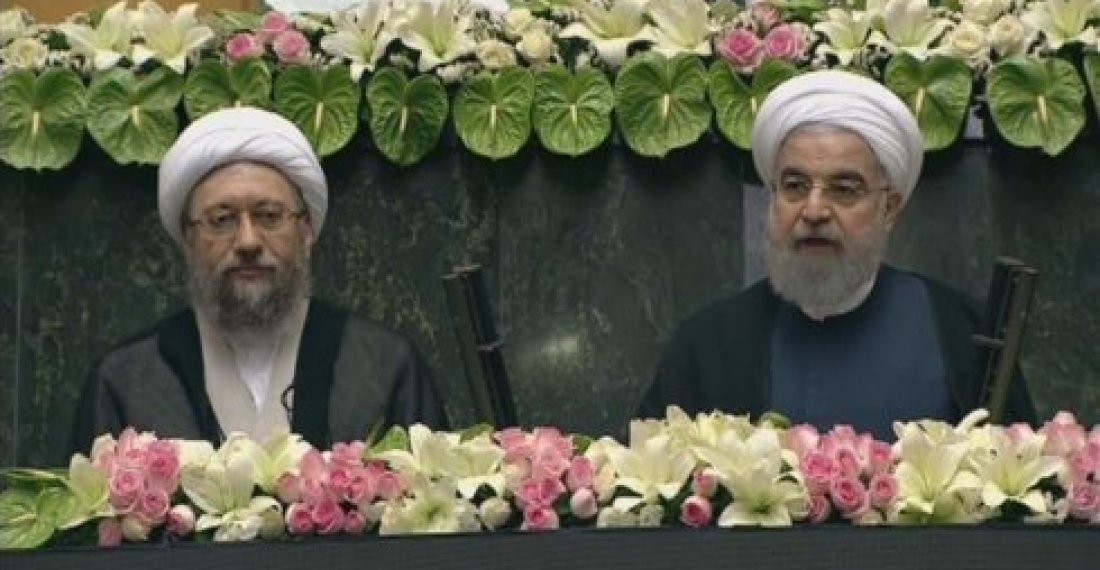Hassan Rouhani was this evening sworn in as President of the islamic Republic of Iran for a second term. at an official ceremony held at the Iranian parliament in Tehran.
The 68-year-old Shia cleric kissed the Qur'an and took the oath of office before Majlis (parliament) lawmakers, foreign dignitaries and senior Iranian politicians.
The inauguration ceremony was aired live from Iranian state TV.
Among those attending the ceremony was a delegation from the European Union, led by High Representative Federica Morgherini. On Saturday morning Morgherini held talks with the Iranian President and Foreign Minister.
More than one hundred high level international delegations attended the inauguration ceremony, including one led by a British government minister. The website of the European External Action Service said that Morgherini will also be in Tehran "in her capacity as Chair of the Joint Commission of the Joint Comprehensive Plan of Action - the international agreement on the nuclear programme of Iran".
 Also among the visiting delegations were high level delegations from the three South Caucasus countries. Armenia was represented at the ceremony by President Serzh Sargsyan; parliamentary Speaker Oktay Assadov represented Azerbaijan, and Deputy Prime Minister Alexander Jejelava epresented Georgia.
Also among the visiting delegations were high level delegations from the three South Caucasus countries. Armenia was represented at the ceremony by President Serzh Sargsyan; parliamentary Speaker Oktay Assadov represented Azerbaijan, and Deputy Prime Minister Alexander Jejelava epresented Georgia.
The Leader of the Islamic Revolution Ayatollah Seyyed Ali Khamenei, on Thursday formally endorsed Hassan Rouhani as president, paving the way for him to take office for a second term as the head of Iran's 12th administration.
During a ceremony Ayatollah Khamenei gave his official approval for the president-elect by giving him a decree to assign him his duties.
In May, Rouhani won re-election in a landslide after securing 57 percent of the votes and defeating his main contender Ebrahim Raeisi.
Under Iran's election law, the president-elect is required to gain the Leader's official approval before being sworn in before the Parliament (Majlis). Through this process, called Tanfiz (validation), the Leader affirms the outcome of the presidential election.
During Thursday's ceremony, Ayatollah Mohammad Mohammadi-Golpayegani, the head of Ayatollah Khamenei's office, read out the decree issued by the Leader to the participants.
source: commonspace.eu with agencies
photo 1 President Hasan Rouhani being sworn in as the 12 President of Iran at a ceremony in the Parliament in Tehran on 5 August 2017.(picture courtesy of Press TV)
photo 2 Federica Morgherini, EU High Representative with the President of Iran Hassan Rouhani in Tehran on 5 August 2017. (picture courtesy of Tehran Times)







